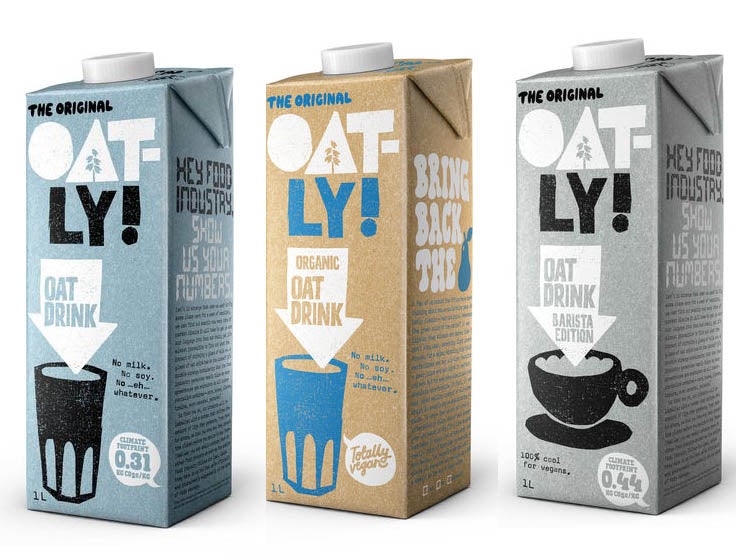This website uses cookies so that we can provide you with the best user experience possible. Cookie information is stored in your browser and performs functions such as recognising you when you return to our website and helping our team to understand which sections of the website you find most interesting and useful.

A campaign for a plant-based oat milk brand is being considered for an investigation by the ASA after more than 140 people complained about issues ranging from sexism to ageism against middle-aged men.
The Oatly campaign, named “Help Dad”, features a series of short films depicting middle-aged fathers enjoying cow’s milk and their teenage children disapproving of them.
In one clip, a son shames his dairy-drinking father, who is 55 years old, by calling 55 a “difficult age”.
The idea of the campaign is to show teenagers encouraging their dads to switch from dairy to an oat-based drink.
However, the Advertising Standards Authority (ASA) has received 143 complaints about the campaign, with people accusing the company of being sexist and ageist against middle-aged men while also offending farmers.
A spokesperson for the ASA said: "Complaints cover a range of issues, including concerns around sexism, ageism, causing fear and distress, affecting people’s mental health, irresponsibly targeting vulnerable teenagers, and being offensive to dairy farmers.
“We have also received complaints about the claims that CO2 emissions created by the dairy and meat industries are greater than the combined emissions of those created by planes, trains, cars and boats etc.”
The spokesperson added that the group has yet to decide as to whether nor not it will pursue an investigation.
“We’re still processing and assessing the complaints to establish next steps,” they said. “No decision has been reached on whether there are grounds for an investigation.”
In response to the criticism, a spokesperson for Oatly told BBC Farming Today: “This is really about the big picture, we are in a climate emergency. We are talking about how people can look at plant-based milks as part of a way to drive down their personal figures.
“We really wanted to make the key point here that livestock emissions are a really important driver for climate change.”
The spokesperson went on to describe the campaign as a “snarky way” of trying “to encourage people to have these difficult conversations”.
They added: "We flipped it as a teenager having to talk to their parent about difficult things.”
Linda Nordgren, Communications Manager at Oatly commented:
“Help-Dad is a campaign to encourage people to talk about an urgent global topic – the health of our planet. We are living in a climate emergency, and our daily habits and choices all play a part. Many don't consider that the food and drink in our diet has a direct impact on global greenhouse gas emissions, so Help-Dad brings that to light and encourages dialogue between generations."
"When it comes to tackling big conversations in life, such as managing finances, getting a good education, or having healthy relationships, it's usually the parent guiding the teen. However, when discussing climate change, teens often take on the role of the mentor in the room and are parenting the parents. The aim of our ads is to bring to life this role reversal to open up these conversations, as awareness will only come through having a lot of conversations about our daily choices and behaviours, no matter how difficult they may be.
"To get the conversation started we made a verbal illustration and compared the lifecycle emissions of livestock to the much more known and tangible direct emissions of transport. And concluded that livestock creates more emissions than all cars, planes, trains and boats put together. We think this is a logical and illustrative comparison for bringing attention and context to the impact of our daily choices. This data is supported by reputable sources, drawn from the United Nations Intergovernmental Panel on Climate Change and The Food and Agriculture Organization. Our references are to global data, because climate change knows no boundaries or geographical borders.
"Over the last week, we have been engaging directly with people, answering questions, and taking on feedback. We’re open to direct discussion with the ASA to address any further feedback.”



 Africana55 Radio
Africana55 Radio 
